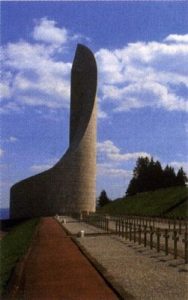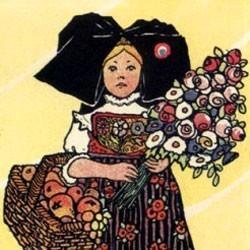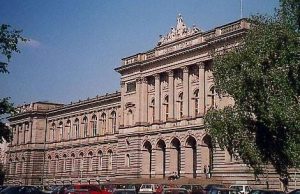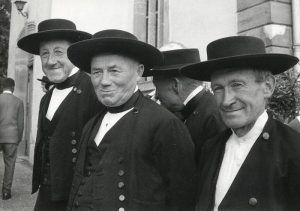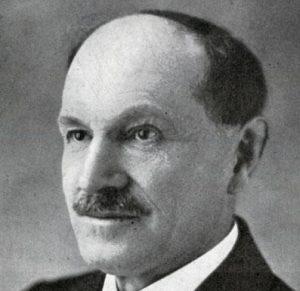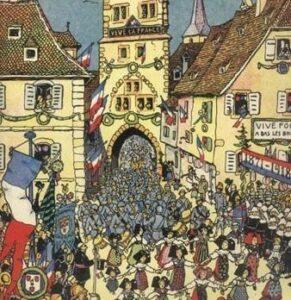Annexation to the 3rd Reich
After the armistice in which Alsace was not even mentioned, Alsace was annexed to the 3rd Reich and the gauleiter, R. Wagner at the head of the civil administration directly under Hitler’s orders, proved particularly violent and spread terror. The administrative organisation was copied on the German system, and former civil servants were compelled to actively and wholeheartedly take part in the application of the Führerprinzip after a period of « re-education ». The Nazi party was made official in 1941, and under pressure about one third of the population joined one of the units within the party. All the symbols of France, such as language, books, family names, first names, funerary inscriptions, posters, were suppressed, but the removal of the statues of Kléber and Rapp from squares in Strasbourg and Colmar made people indignant. About 50,000 people were expelled.
The situation of the churches
The Rev. Carl Mauer was appointed president of the Church of the Augsburg Confession. He was a former interned autonomist and earnestly pro-German, but anti-Nazi. His behaviour was ambiguous, maybe to defend the Lutheran Church. At the monthly meetings of pastors, instructions in favour of the resistance may have been given.
The Nazi party developed its anti-Christian politics, put an end to the concordat regime of 1801, and the administration no longer paid the salaries of priests and pastors. The churches became private religious societies under civil law, and had to pay taxes, fortunately recompensed by the generous contributions of the faithful. Private schools were suppressed. Despite these assaults, attendance at worship was overwhelming, as the gospel was considered a liberation message.
The Catholics adopted a position of total refusal. Some of the old autonomists-separatists, mostly rural and Lutheran, who felt that France had let them down once again, were at first rather in favour of the Germans ; whereas, except for a few collaborators, from January 1941, the Protestant community veered to the opposition.
Drafting, terror and resistance
From 1942, the men of Alsace were forcefully drafted into the Wehrmacht, and some sent to the Russian front, a number of these Malgré Nous (« against our will » or literally, despite us) deserted or escaped. After 6 June 1944, some were sent to fight the allied forces in Normandy. Among the 130,000 men of Alsace drafted, it is believed that 32,000 were killed, 10,500 were lost in action and 32,000 were injured.
Terror rained down on Alsace. The awesome Schimneck camp was synonymous with torture, and the concentration camp in Struthof was similar to the other death camps.
Resistance was organised, at first passive, and then, facilitating escapes and finally, armed. The population of Alsace is thought to have lost 50,000 human lives, which represents proportionately three times the losses as in « homeland » France.
As B.Volger said : « Alsace was the most tortured French region. Constantly terrorised and economically ransacked, (the people) also became cannon fodder for a foreign cause ».

